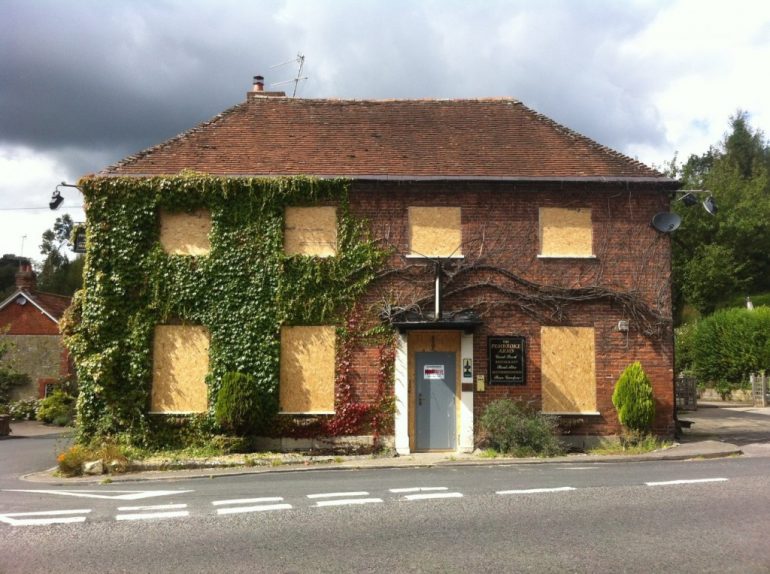
Commercial premises or a residential property may be a very desirable asset which appreciate significantly in value – so no matter how the property is used – whether for business and commercial, primary resident, full-time letting or part-time holiday – it is wise to protect the property’s value. However, once a property becomes vacant, it becomes a lot more difficult to protect its value, since an empty property that is poorly managed can depreciate quickly in condition as well as in value, to the extent that it even becomes a liability for the absent owner.
Although many general risks of property, like fire damage, utility leaks, flooding, or storm damage can occur and require expensive repairs when a property is occupied, the potential of additional damage, costs and risks can increase significantly after a property is empty. Sometimes there is no choice but to leave a property vacant, once the removals company has been in here are some dangers to be aware of and tips to help avoid them:
Utility leaks and Flooding – In an occupied property, these issues can be addressed quickly, but if the property is empty the problem may be present for a long time before it is discovered – and by that time there could be extensive damage which may require expensive repairs.
Fire damage – an empty property can quickly be taken over by a fire and with no one there to hear a smoke alarm, what starts out as a small fire may quickly turn a property into a dangerous and uninhabitable building as a result of the water damage, smoke damage and flames after the fire has been extinguished finally.
Flying tipping – although occupied residences may experience occasional litter, illegal dumping of big-scale waste – Fly-tipping – plagues empty properties. Since 2014, when bulky item collection fees were introduced by the councils in the UK, fly tipping has increased. Empty properties – which includes their driveway space, yards, and gardens – may be a target of irresponsible fly-tipping. Also, when that takes place on private property, it is the landlord who is completely responsible for paying for the removal of dumped items, and the council can order him to do so – and if they do not comply may even be fined.
Squatters – people who trespass and then occupy the property without getting permissions are squatters who target empty properties and that includes vacant commercial premises. When squatters are occupying an empty property it can be very expensive and difficult to evict them and may cause significant damage during their occupation. Trespassers and squatters might also make the property a centre of anti-social behaviour, which includes malicious damage, and theft of fittings, fixtures, and amenities like fitted kitchens, metals, plumbing, and boilers to reduce the building’s fabric to complete ruin. Smartlox Edinburgh suggest you utilise all safety provisions you can afford to ensure that your locks will keep out unwanted visitors.
Plan for your empty property
If you have a plan in place for managing your empty property that is a good technique to reduce the potential of problems. Measures for reducing risk need to be in place from the very beginning of a vacant period and even minimise by completely avoiding a vacancy.
1. Avoiding vacancy
You can achieve this by ensuring that the property is always occupied. There are various ways to that, especially residential properties, including:
Use a Property Guardian – a professional house sitter, should only be appointed following a strict vetting process and having an occupation agreement with the property guardian. Most agreements allow a maximum notice of 28 days for vacating the premises as needed so that vacant possession for alternative occupation or for sale can be done quickly. A property guardian generally will have use of a bedroom along with domestic amenities like bathroom and kitchen, in exchange for paying a nominal amount of rent. The rent can be negotiated and might even be waived in exchange for maintaining the garden since that keeps the appearance up of someone being in residence from the outside and inside. Another benefit to having the property occupied instead of empty is having someone on site that can alert the managing agent or owner of any problems, like storm damage, weathering, leaks, or break-ins.
Council Re-let Services – There are a few local councils in the UK that run schemes where the rent a property for a period of time (usually about 6 months) from a private landlord and during that time the property is re-let to council tenants. These schemes are mainly in place where housing stock is very low and there is high demand for subsidised or social housing. When your property is re-let in this way it involves comprehensive agreements that it is advised that all landlords fully consider and does offer a money-making alternative to a property standing vacant, where not only is it not generating an income, but potentially is generating bills as well through getting into the hands of vandals or squatters or falling into disrepair. But if the property must be vacant, either over the long term or temporarily, there still are steps that may be taken for minimising risk and maximising security.
2. Secure the property
Adding screens or security boards to all of the access points – including roof light windows, basement casements, windows, and doors – to secure the empty property will help prevent trespass. Standard security measures like security lighting may be beneficial to all properties when it comes to screens and boards the most suitable type of security screening is going to depend on factors like length of vacancy, environmental conditions, and the premises:
Timber boarding is often cost-effective in the short term to secure a vacant property, such as following an accident or fire, or in between tenancies. Steel security doors and security screens may be very cost-effective over the long term and for repeated use since galvanised steel construction is very robust and offers strength and durability. Steel screen options include either Sitex screen which come with small apertures that allow ventilation and light and are fitted to the interior of the property or solid steel, which is fitted onto the outside part of access points. All designs provide tamper-proof fittings and are also damage resistant, including against attempted break-ins where hacksaws and crowbars are used. Steel security screens are therefore ideal if the property’s interior contains valuable items, for example, construction tools or metal fittings that are needed whenever a property is being renovated.
3. Property checks
Regular checks and inspections of the property should be included in managing a vacant property. Inspections should include all of the following aspects:
Exterior
Inspect the building and take care of any build up debris or leaves in the drains and gutters, which can result in damage and damp from leaks;
Check the roof for damage following seasonal weather or storms;
Check seals on letterboxes, security screens, and access point to ensure there has been no tampering;
Check boundary fencing to make sure that the overall premises are completely intact.
Interior
Check the loft on a regular basis for storm damage in the roof space;
Check for seasonal problems like rodent infestations, mildew and damp due to lack of ventilation, and leaks from frozen pipes.
4. Property monitoring
For winter, install security cameras
To ensure security via monitoring, an option might be manned security, but remote instead of manned methods may actually be a more effective method when it comes to convenience, overall efficiency and cost.
24-hour monitored CCTV
Modern CCTV systems provide on-site security with remote or off-site monitoring from the trained security staff of Safe Site so in the event of suspicious or criminal activity on the property, that the police can be alerted quickly. Cameras may be tilted and panned to achieve the best surveillance possible, recording and monitoring of any situation, with the ability to retrieve recordings to support insurance and police process for identification or evidence purposes.
Alarm system with 24-hour monitoring
Although standard burglar standards, of course, may deter burglars, monitoring systems alert trained security personnel if there is an attempted break-in or an intruder actually breaks through, to ensure a quick response and timely action as necessary. Since it is recommended that utilities be switched off at vacant properties, monitored alarm systems fully function without needing a phone line connection or electricity so alarms act still as a visible deterrent but may be responded to immediately as needed for:
Pass alerts on to a designated mobile that ensures updates and information are available.
Record when activated, to allow the situation to be checked remotely and immediately in cases of wildlife accidentally tripping the system.
Gather evidence in cases of attempted trespass or vandalism.
When monitored security is used it means the whole building may be observed over both long and short periods of time, that fit with both long term or temporary vacation time periods.
None of these methods, of course, are mutually exclusive. For additional advice on which combinations of security or methods might best suit your empty property needs.




 POSTED BY
POSTED BY 

